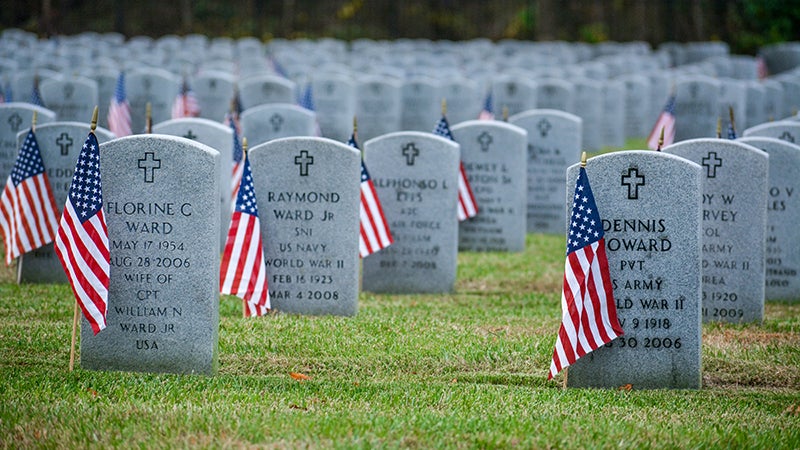Program helps youth ‘refocus’
Published 9:41 pm Monday, October 6, 2008
When he was in school, 16-year-old Justin Graham was constantly in trouble.
“I needed some discipline,” Graham admits. “In school, I just didn’t do nothing but get in trouble.”
Graham’s main problems with school had to do with respect.
“I always talked back to my elders, never had respect for anybody but myself,” he said. “I just didn’t really care.”
Others around his age had similar experiences.
“I wasn’t really doing well in school,” said James Quier, 17. “I failed ninth grade. I didn’t really care.”
Jon “Luc” Young also needed a second chance.
“Some of my friends were bad influences,” he said. “I was not doing what I had to do to be successful in life.”
For these young men and many other young people throughout Virginia, the Commonwealth ChalleNGe is helping them get a fresh start.
Commonwealth ChalleNGe is a program run by the National Guard for at-risk young people ages 16 to 18. The two-part program includes a 22-week, quasi-military residential phase followed by a year-long post-residential phase. During the residential program, cadets, as the students are called, learn life-coping skills, work skills, citizenship, leadership, health and fitness and community service skills while taking classes to work toward a General Education Diploma. The second portion of the program is built around a mentoring relationship established during the residential phase. The mentor will help them follow through with the life plan, whether it be continued education, employment or military service, established during the residential phase.
“It refocuses them, gives them a second chance,” said Col. Thomas Early, one of the many people with a military background who help run the program.
The first two weeks of the program are called “hardcore.” During these weeks, the cadets are taken to Fort A.P. Hill for physical training and what Early calls “tough love.”
Once that’s over, the cadets, about 125 of them per session, come back to Camp Pendleton, in Virginia Beach, to begin the academic phase. Cadets are up at 5:30 a.m. to clean the barracks, make their beds, and get ready for the day. After that comes “chow hall march” to breakfast, about a mile away. They then are given all their information for the day and they march to classrooms, where they take English, science, social studies and math. They also go to a computer lab where they can learn computer, life and job skills through software programs.
After school is over, the cadets salute and lower the flag and do physical training. After that comes dinner, and then cadets are free to take showers, call home on certain nights, do laundry, starch and iron their uniforms, and study.
The entire program is free to each cadet, with federal and state dollars providing the full cost for the program.
Cadets get the chance to move up in rank while they are at the program. After the first two weeks, all cadets are in the green phase. After six weeks, cadets have the opportunity to make silver phase, which is achieved by having good behavior, test scores and progress. Cadets in the silver phase wear a silver rope on their uniforms. After 16 weeks, cadets in the silver phase can achieve gold phase, when they can wear a gold rope on their uniforms, and a gold T-shirt or sweatshirt when not in uniform. Cadets also earn certain privileges, such as the use of CD players, as they move up in the phases.
Cadets are watched 24 hours a day in three different shifts by the cadre, a group of people with military backgrounds who lead the cadets through the program. Students must have a job, higher education, or military service lined up to be graduated out of the program, and Commonwealth ChalleNGe helps them with that by bringing in military recruiters and representatives of community colleges and other organizations to talk to the cadets.
After cadets graduate, their mentor is expected to encourage them and report back to the ChalleNGe program about their student’s progress.
“if these kids don’t make it in ChalleNGe, there’s two options: one is the graveyard, and one is jail,” Early said. “These kids will come back and say, ‘You saved my life.’”
The Suffolk cadets agree that the program has helped them refocus and think about what they need to do to be successful.
“It is a very good experience,” said 18-year-old Christopher Colby. “It’s a whole lot different than I thought it was going to be.”
Justin Graham said the program has opened up his options.
“In school, you only have one choice, behave or get kicked out,” Graham said. “Here, you have more options to choose from.”
James Quier, who just made the silver phase, said discipline is better at Commonwealth ChalleNGe.
“You don’t have the option of sleeping, so you stay focused,” he said. “You get the chance to stand up if you’re tired. That way, you pay attention better.”
Jon Young, who is in the drum corps at Commonwealth ChalleNGe, said he plans to go to college after leaving.
“This keeps me on the right track so I won’t do nothing stupid,” he said. “It’s a good program. It gave me opportunities that I didn’t know I had when I was at home.”




